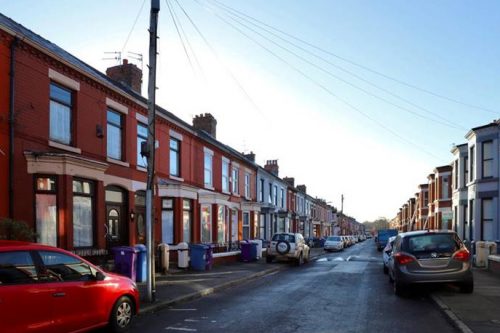Council to limit converting smaller homes into houses for multiple occupation

Liverpool City Council’s cabinet has today (March 19) approved a recommendation that will limit the number of houses of multiple occupation (HMOs) in the inner core of the city.
The move will cover more than 60,000 homes.
Today’s decision follows a two month long public consultation on the issue which showed 81% of people were in favour of the move. More than 850 people responded, with just 13% against the proposal.
Over the past decade, Liverpool has seen a significant growth in the number of HMOs – with its booming student population and current housing benefit rules fuelling a demand for single person households.
Fears have been expressed that the volume of HMOs has reached ‘a tipping point’, which is threatening the housing offer in the city for families and causing parking, anti-social behaviour and waste collection issues in certain neighbourhoods.
Currently, conversion of family houses into larger HMOs – seven bedrooms and above – must have planning permission, meaning that the council has some ability to influence where and how larger HMOs are developed.
Now the city council will introduce the same rules across the inner core of the city for any new HMOs of less than seven bedrooms, from June 17, this year. The decision will have no impact on existing HMOs.
This is not the first time the council has adopted this change.
In 2018, it implemented an Article 4 Direction in the Dales area of Greenbank Ward, in south Liverpool, and this broader step across 11 council wards would follow a commitment made in Liverpool’s Draft Local Plan to utilise Article 4 to control smaller HMO development elsewhere in the city.
The new Article 4 direction will apply to the following wards in the city: Anfield, Central, Greenbank, Kensington And Fairfield, Picton, Princess Park, Riverside, Tuebrook And Stoneycroft, Wavertree.
Part of the following electoral wards will also be included at the boundaries of: Kirkdale Ward bounded by Leeds Street, Vauxhall Road, Ford Street and Scotland Road; Church Ward bounded by Heathfield Road, Queens Drive, Allerton Road and Rutherford Road.
Cllr Barry Kushner, Liverpool City Council’s cabinet member for housing, said: “Residents have told us how much HMO’s are damaging the fabric and stability of their community. I’m delighted to say we have listened to those concerns and are seeking to take control of where these conversions can happen.
“Introducing Article 4 across the heart of the city will protect more than 60,000 homes and provide the security and support our communities need to flourish.
“As a council we need to have the ability to offer families of all different sizes and people with a whole host of needs a variety of good quality, affordable homes.”
He added: “If unchecked, HMOs were in danger of reducing Liverpool’s offer which is why we need to reset the dial whilst developing more social housing across the city.
“Changing the planning rules by introducing controls under Article 4 will not just protect the wellbeing of the people who live in these communities, it will also help protect the balance of our housing offer – which, in some areas, is close to a dangerous tipping point of being dominated by one bedroom bedsits.”
Although 81% of the consultation response was in favour of the measures, the council said it also listened to landlords who were concerned over the effect on ongoing conversions during the pandemic, and decided to extend the period before the Direction comes into effect in June.
Cllr Kushner said: “Of course, Article 4 is not the whole answer to Liverpool’s housing problems. That is why we are preparing a new application for our Landlord Licensing Scheme to ensure good housing standards are maintained in the private rented sector and why the city council is embarking on a house building programme for the first time in 30 years.”








